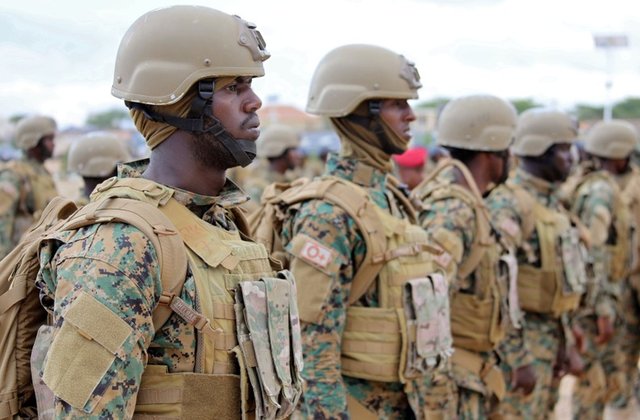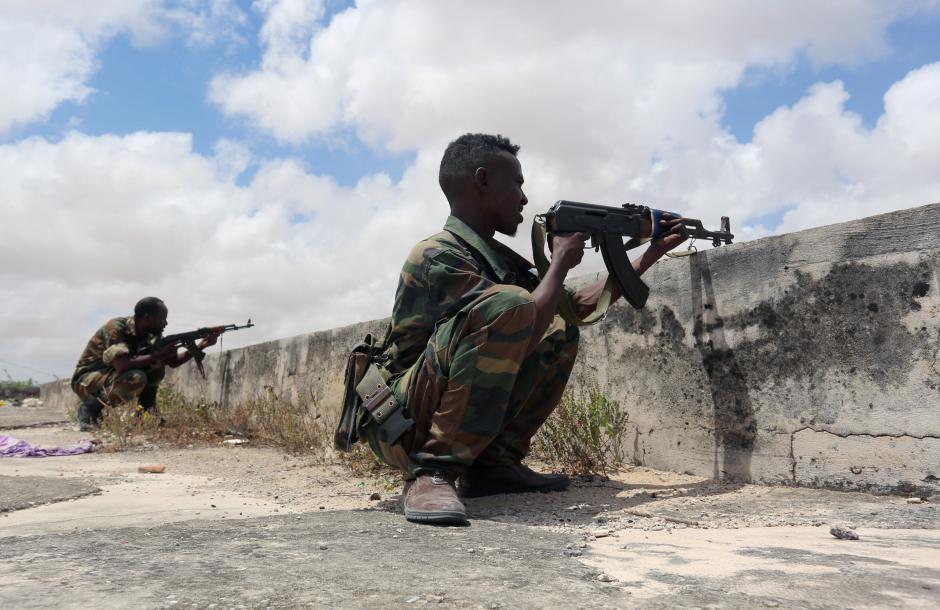Somalia must speed overhaul of fragile army to face militants, say donors


By ![]()
NAIROBI (Reuters) – Somalia should accelerate reforms of its army, its main foreign backers said on Wednesday after discussing slow progress in transforming the graft-ridden force into one capable of fighting al Qaeda-linked al Shabaab militants.
The statement from a donor summit in Brussels urged Somalia to work faster to address problems identified in a report last year by the government, the United Nations and the African Union (AU).
That report called the Somali National Army (SNA) a “fragile force with extremely weak command and control”, and comes as AU peacekeepers prepare for their departure in 2020, leaving the local military in charge of Somalia’s security.
The AU force began drawing down last year. It does most of the fighting against Shabaab insurgents who launch attacks in Mogadishu and elsewhere. Without strong Somali forces, Shabaab could be reinvigorated, analysts say.
Donors said the army should create biometric registration and electronic payroll systems to curb corruption.
“The SNA has to improve dramatically in a short amount of time as it is falling farther and farther behind schedule on achieving the benchmarks agreed to last year,” said Joshua Meservey, at the Heritage Foundation in Washington.
“MORE TRUST”
The International Monetary Fund has been pushing for better management of public finances and says the government is implementing reforms under an agreed staff-monitored program.
The government has adopted a single public finance account to guard against theft, introduced a sales tax at the Mogadishu port and started taxing telecommunications companies, Finance Minister Abdirahman Duale Beileh said.
Federal government revenues have quadrupled since 2012.
It will soon enter a third 12-month IMF program which it hopes will be its last, paving the way toward restructuring external debt of nearly $5 billion. Somalia has not made a debt service payment since civil war broke out in 1991.
“We are open for audit. The IMF has access to our systems,” Beileh said. “We are walking the walk and doing what needs to be done.”
The Bank could this year offer its first grant to Mogadishu in more than 25 years if reform continues, the minister said.
Such funds could lessen Somalia’s dependence on less predictable or transparent funds that often come with political conditions.
Tensions between the federal government and provincial administrations have escalated this year amid a row involving Gulf nations whose problems have spilled into Somalia. The United Arab Emirates and allies have imposed sanctions on Qatar in the standoff – and both sides have backed rival camps in Somalia with money and investments.
